After a 9 long months of pregnancy and then giving birth to your little bundle of joy, contraception may be the furthest thing from your mind. However, if you don’t want any little surprises, it is best that you give your contraception after birth some thought and consideration.
Personally, I didn’t give it too much thought. At my 6 week check up the doctor gave me the mini pill and that was the end of it. To be honest, I never even ended up taking it and was just lucky that we didn’t have any additions to the family. In hindsight this was probably not the best option for me as I think it gave me some unnecessary anxiety.
Once I finished breastfeeding, my mood started to gradually decline each month and it was at this point I returned to the GP and was prescribed the combined pill. My mood turned around within days and I was happy with my choice to go back on the pill. However, given that I am now mid-thirties, there are some added risks with taking the contraceptive pill. And I always gain a few kilos.
So, when I came to learn of The Lowdown, the world’s first review platform for contraception, I was really eager to chat with them and share this wonderful initiative. Please enjoy my wonderful and insightful interview with the founder of The Lowdown, Alice Pelton, about contraception after birth. Its a long one, but there is so much great information contained within that I think you will find it to be a really educational read. And a special shout out to their in-house GP Dr Fran for all the medical fact checking in this blog!
Hi Alice, thank you for taking the time to speak with me. Can you give me a little background about The Lowdown and what it is all about?
The Lowdown is the world’s first review platform for contraception. Our mission to make contraception easier to choose, access and use.
I set up The Lowdown because I struggled for years to find a contraceptive method that didn’t negatively impact my mood. In my search for the right method I realised I couldn’t find useful data on real women’s experiences and side effects from contraception at scale, anywhere.
So I built this website, and it’s taken off – and now thousands of women come to us every day for information and advice!
So, lets get the lowdown on contraception after child birth. When should new mothers start thinking about this?
Good medical practice suggests that all women should have a conversation about contraception during pregnancy to make sure they have the information and time to consider their options before delivery of their baby.
Contraception is very individual, and women’s thoughts and feelings about the correct method for them can change a lot throughout their reproductive life. For example, women who are in their first pregnancy and wishing to continue a family will have different wants and needs to women who are finishing their family. The important thing is that women have the choice and are not pressured into a certain method too quickly post delivery.
However, it’s OK if women don’t know what to choose immediately, as you have 21 days after delivery to decide. After these 21 days, your fertility returns and you can fall pregnant again. If you haven’t decided or arranged anything within the first 21 days, don’t worry because your GP should discuss contraception at your 6-8 week check.
What contraceptive options do new mothers have available to them? And how do they know what is the best option for them?
New mothers have the same contraceptive options as other women. Progesterone only contraceptives including the progesterone only pill (mini pill), injection or implant can be started straight away after delivery and these have no impact on breastfeeding.
There are however, options which can only be started at certain points after delivery…
For example, a coil (Copper or Hormonal) can be fitted immediately after delivery of the placenta or C-section up to 48 hours after, but if it isn’t managed, insertion should wait for 28 days postpartum to reduce the risk of uterine rupture.
The Combined hormonal contraceptive (Pill, Ring or Patch) are popular choices among younger women but aren’t recommended for every woman. This is because postpartum women are at a higher risk than usual of developing blood clots in the legs or lungs (known medically as venous thromboembolism, or VTE risk). The oestrogen contained within combined hormonal contraception can also increase the VTE risk.
Each woman’s individual risk level is assessed after delivery which includes factors such as your weight, smoking status, delivery method and any complications such as pre-eclampsia or haemorrhage. If you are deemed as having a higher VTE risk, then Combined hormonal contraception should not be started until 6 weeks after birth. If you are formula feeding and have a low VTE risk, you can start combined contraception 3 weeks after delivery.
To find the contraception after birth method to suit you, check out the NHS website and The Lowdown for reviews from thousands of other women.
What options are safe if a new mum is breastfeeding?
Breastfeeding mums can take advantage of the Lactational Amenorrhoea Method of contraception. This is a really effective method of contraception if women follow these rules:
1. They ONLY breast feed with no supplementary formula feeds,
2. They have not yet had a period, and
3. They gave birth within 6 months.
If women meet all three, then your body does not ovulate (release an egg) and there is a 98% effectiveness at preventing pregnancy with this method. However, you must breastfeed every 4 hours throughout the day and every 6 hours at night. If you have a period, or your breastfeeding reduces then the method becomes less effective and you may fall pregnant. Six months after delivery, you should find another method to suit you as your body will naturally start ovulating again.
Breastfeeding mums can use combined hormonal contraception, but not until 6 weeks after delivery. All the other methods are safe to use while breastfeeding and research shows they have no effect on lactation or your baby’s growth.
Are there any specific questions you would suggest new mums raise with their health professionals when it comes to contraception? And is there anything they should be mindful about?
New mums should always ensure they ask about the advantages and disadvantages of each method they are considering. A few tips:
- Some side effects of contraception will have a much greater effect on some women than others. For example, a women who suffers with acne may not want to consider the Progesterone-only Pill but may prefer Combined contraception which contains oestrogen which can help with this. You can check out The Lowdown’s data to find out more about which side effects are associated with each method.
- Another consideration is how a pregnancy will change your suitability to a certain method. There is little research into this but in our resident GP Dr Fran’s experience, some women find their mood or skin are affected differently by the same progestogen they were on for years prior to pregnancy, both positively and negatively. We don’t know why this happens, but if you are no longer happy with your contraception, then talk to someone about changing it.
- Women should ask how effective the contraception is, and how they should use it. I’d advise women to keep in mind that they may be more tired or busy than usual and will this make them forget to take their pill?!?
- If you have used the cap or diaphragm previously, this should be re-fitted due to the changes the cervix goes through during pregnancy and delivery.
- Women should discuss their wish to breastfeed and their VTE risk if considering Combined hormonal contraception.
- Finally, be mindful about timing, some women can become fertile very quickly after childbirth, so if you don’t want any surprises then make sure you have a good reliable method 3 weeks after delivery.
If new mothers are hoping to expand their families, is there anything they should consider when choosing their contraception?
Firstly, take the advice from healthcare professionals about the timing between pregnancies to ensure you and your baby are bonding, they are developing and your body is healing. The World Health Organisation suggests leaving 24 months between pregnancies which ensures both the new baby and mother are bonded and healthy before another arrival.
Less than 12 months between pregnancies is associated with higher rates of low birth weight, premature delivery and pregnancy complications – meaning effective contraception after birth is really important. Postpartum women need to be contraceptive savvy to have control over pregnancy and choose the right time to expand their family further if wanted.
Secondly, choose a reversible method, so avoid sterilisation or vasectomy, contrary to what some people believe, these are NOT easily reversible. If you were considering the injection, be aware that fertility can take up to 12 months to return after using.
All other contraceptives have a quick return to fertility and even the coil or implant are very easy to remove when you are ready to start trying again so remember to choose the right method for you.
How long do you recommend trying a specific contraceptive method to decide if it is right for you and your body?
When it comes to hormonal contraception, the general consensus is that it takes around 3 menstrual cycles for the body to adjust to the change in hormones. That’s because research shows that side effects (in particular, bloating, nausea, and breast tenderness) usually subside within the first 3 months. One study looking specifically at spotting for women on the hormonal contraceptive pill – the inconvenient bleeding throughout your cycle – cue extra laundry – found that it was much more present in the first 3 months.
That said, I speak to so many women who just can’t stand the method they’re using – and I always say, you know your body better than anyone else. Don’t put up with something that is making you miserable!
If you could give ladies one piece of advice in relation to their contraception, what would it be?
Perseverance. Keep trying new things, and asking lots of questions. Using something that doesn’t suit you and your body can really impact your life and mental health. And if you’re not satisfied with your contraception it makes you more likely to stop using it properly, making it less effective.
It’s not an easy choice to make – our findings show that almost half of women had trouble trying to find a method of contraception that suited them, and 78% of women have experienced unwanted side effects from their contraception. But it’s worth persevering; for many of us contraception is an absolute necessity and something that we use for decades.
Finally, where can our readers find out more information about the The Lowdown?
Head to www.theldown.com to search and read through thousands of anonymous reviews – and share your experience to help other women. We’re also talking about contraception non-stop @Gettheldown on Instagram!




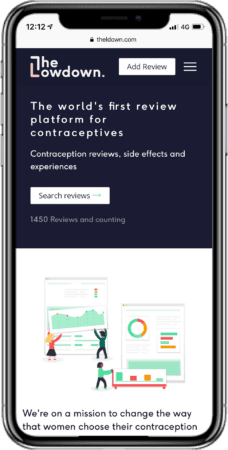
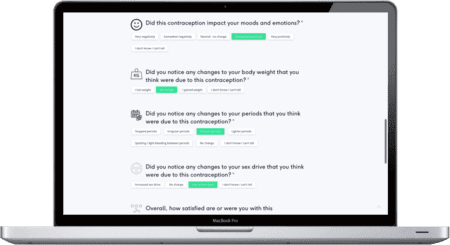
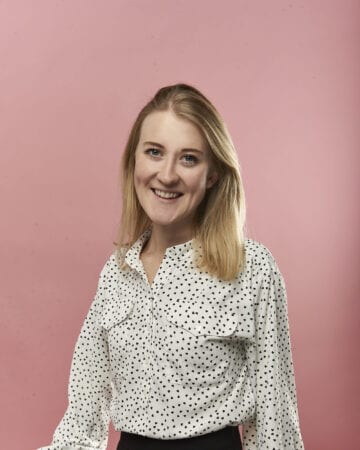
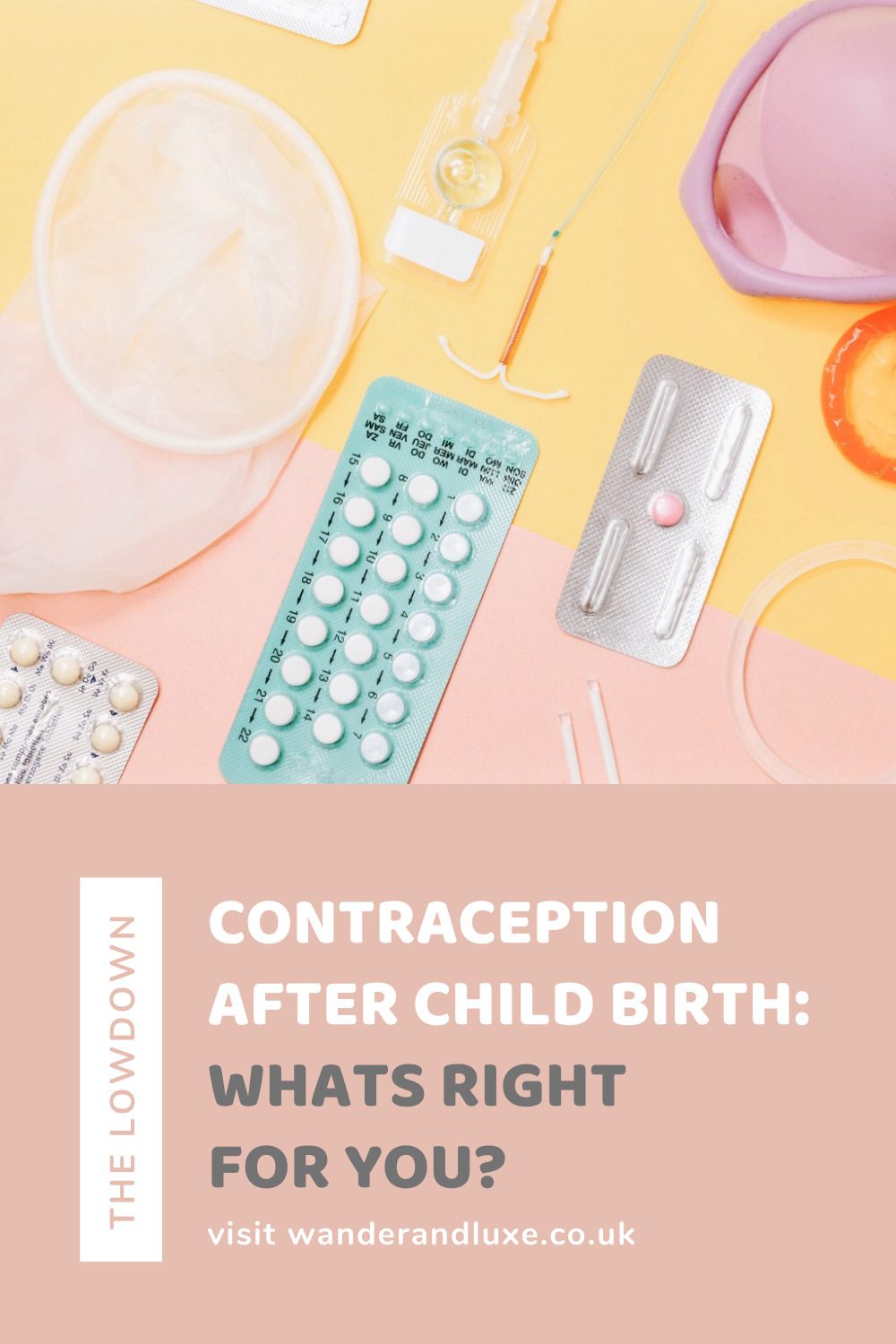



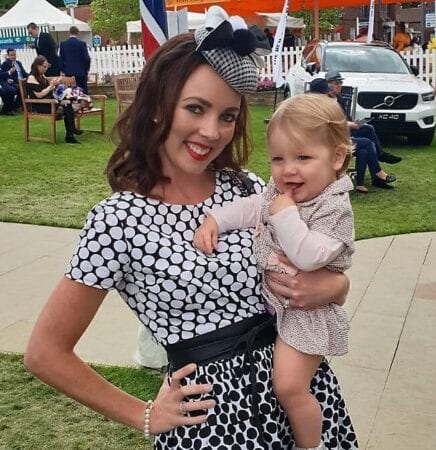







13 Responses
This sounds like a really useful service – great to see all the options in one place to make it easier to make an informed choice 🙂 #dreamteamlinky
What an interesting read! The Lowdown sounds like a fab place for any ladies looking into new methods, or what would work best after the arrival of a new baby. Thank you for joining us for the #DreamTeamLinky 🙂
I found it strange that the midwives talk about contraception minutes after giving birth when you have no intention of ever having sex again! I was disappointed that my pill caused me loads of problems when I went back on it after birth and it took years (and another baby) before it all settled. Thanks for linking up with #dreamteamlinky
I’m 5 months post partum after baby number four & haven’t given it much thought either – probably should! #DreamTeamLinky
This is brilliant I am off to check out The Lowdown now. I have been on the pill for a really long time and it definitely impacts my weight and mental health but I keep using it rather than looking at other options so this will be great for me. Thanks so much for linking up at #KCACOLS. Hope you come back again next time.
What an important service no wonder it has taken off like it has #KCACOLS
So much information here and an extremely important service. #KCACOLS
What an amazing service- there is so little information from real women about the side effects of different contraceptives. I struggle massively with mood and hormones and I’ve attempted to have a discussion with GPs several times about finding the right solution but they genuinely make you feel like you’re wasting their time. It’s great that a service can offer such in depth information that goes beyond the printed leaflet in a pack of pills. Bravo!
Katrina x
#KCACOLS
This sounds like a great service. I found that my body realty totally differently to the pill after pregnancy even though I have been on it for 10+ years before so I had to try something different and I found it really hard to choose. This would have been so useful. #KCACOLS
Great informative post. Thanks for sharing. It’s something we don’t think about … until we really have to. Thanks so much for linking up at #KCACOLS. Hope you come back again next time.